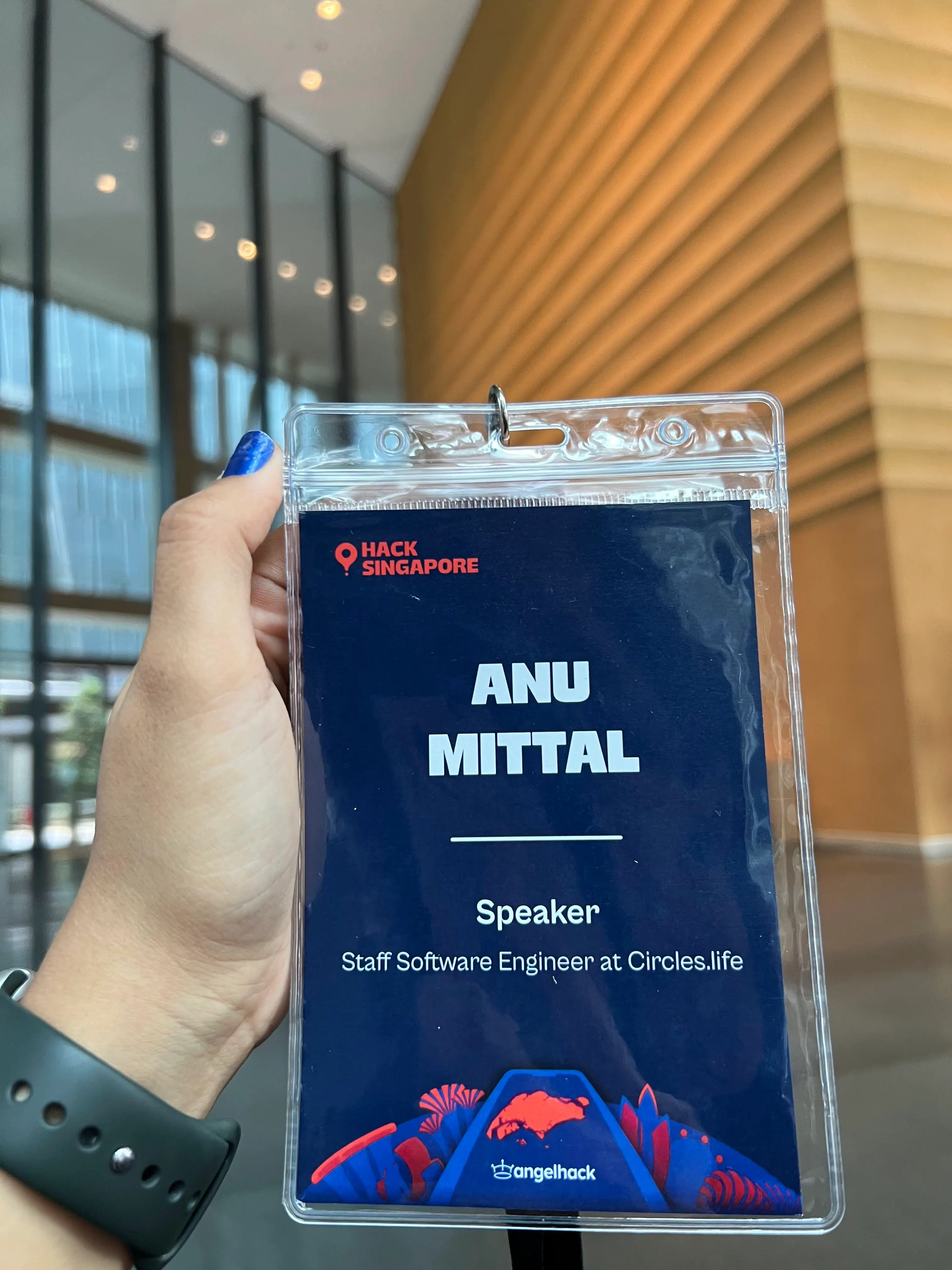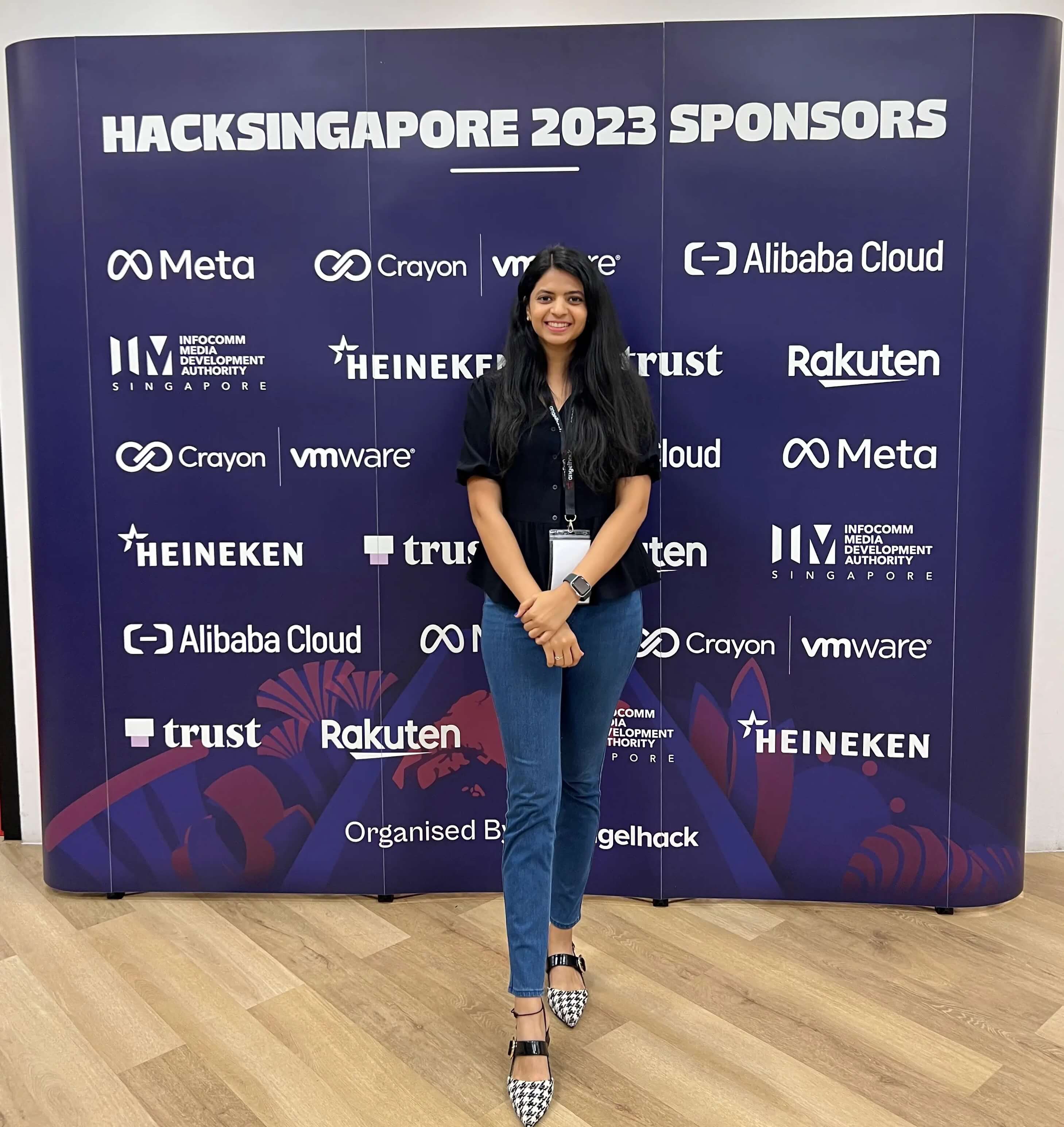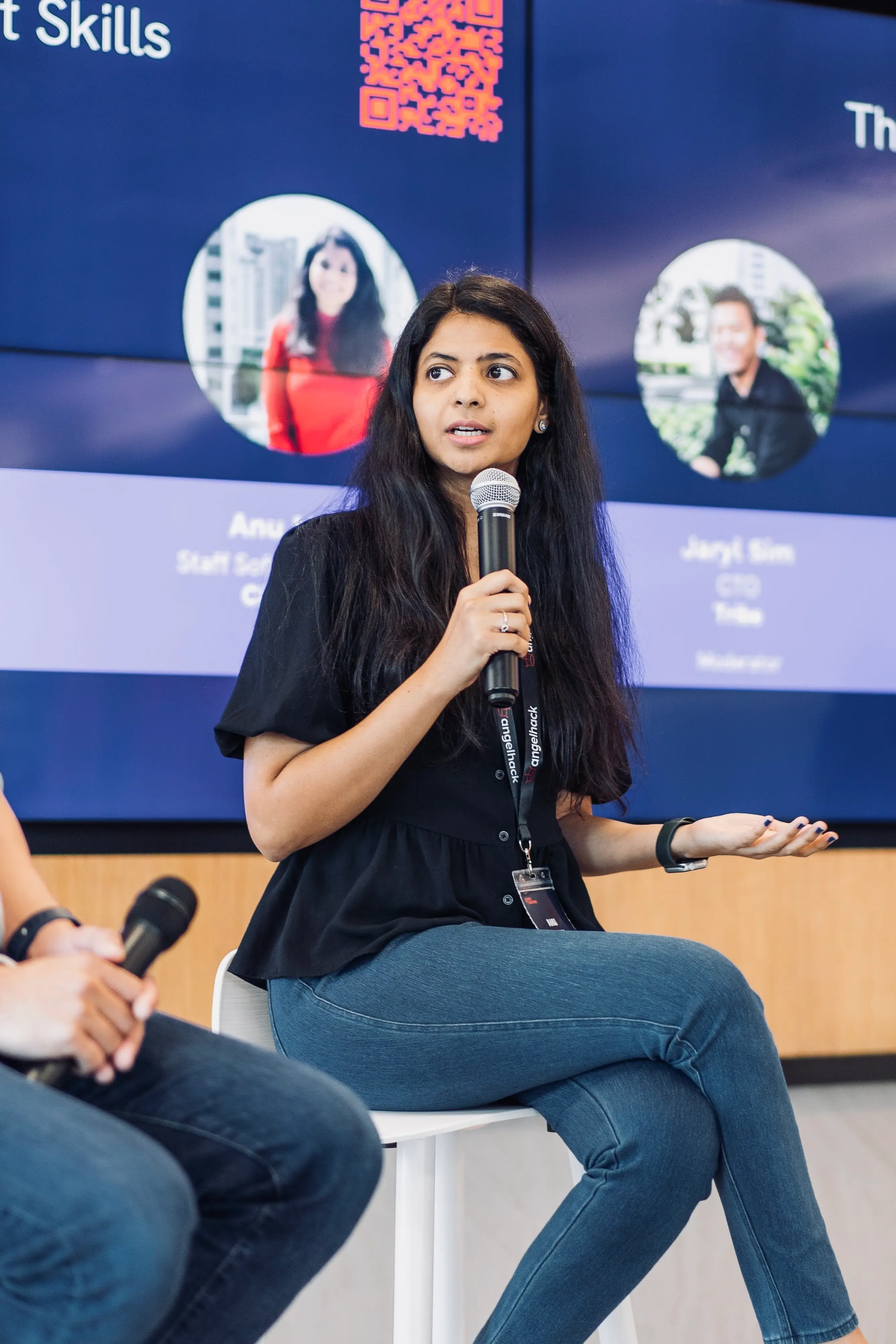Panel discussion at HackSingapore
On 20th May 2023, I got an opportunity to be a panelist at one of Singapore’s most active hackathon community known as HackSingapore.

What was the topic of the panel?
The topic of the panel was “Importance of soft-skill in Engineering” where the focus was on the importance of soft skills such as communication, collaboration, and leadership in technical roles in the tech industry where I as a speakers shared examples of how these skills have been crucial to my success.
Why was I keen to talk about the topic?
My motivation for discussing this topic stems from my personal and professional experiences. As a Staff Engineer at Circles, I have a bachelor’s degree in computer science and a passion for open source. I have contributed to KDE and participated in Google Summer of Code, which gave me the chance to speak at various conferences around the world, such as in Spain, Singapore, and India. There, I learned the value of networking and connecting with people from different backgrounds and perspectives. I have also worked in several startups, where the dynamic environment and the “break fast, grow fast” mentality taught me the importance of soft skills like communication and collaboration. Moreover, I believe in giving back to the community and helping others learn and grow. I am an active contributor to WWCode and kodeco, where I use my soft skills to mentor and support fellow developers.
As a staff engineer on the IC track, how have soft skills played an important part in your day-to-day?
Soft skills are essential for my day-to-day work as a staff engineer on the IC track. I interact with various stakeholders, such as business teams, product managers, designers, and more, who have different backgrounds and knowledge levels. I need to adjust my communication style accordingly to ensure effective collaboration across teams with different skill sets. For example, when I talk to a technical person, I can use more technical terms and details. But when I talk to a business person, I need to focus on the ROI and benefits in business terms. This way, I can tailor my communication to the level of understanding and context of each stakeholder.
Another important part of my role as a staff engineer is creating a safe space where team members can share their ideas and innovations without fear of judgment. This requires strong leadership skills, which are also soft skills.
One of these leadership skills is engaging in a technical and constructive feedback loop with team members. I encourage open discussions, provide feedback, and listen to different perspectives. This helps foster a culture of continuous improvement and innovation. Effective feedback and communication also help team members grow and develop, which ultimately leads to the success of the team as a whole.
In summary, soft skills are vital to my role as a staff engineer. They help me navigate diverse stakeholders, adapt my communication style, and create an environment that promotes collaboration, innovation, and growth. By improving these soft skills, I can lead and contribute to the success of my team and the projects we work on.

How important has it been to network with people in the same organization, and also outside (attending conferences, giving talks)?
Networking has been vital for my professional growth and development. Within my organization, networking has helped me connect with people with different skill sets, such as data analysts, operations experts, business professionals, product managers, and designers. This wide network has enabled me to grow vertically and horizontally, expanding my knowledge and capabilities. Interacting with experienced professionals has also given me valuable insights and perspectives, helping me learn faster and avoid reinventing the wheel. My depth of understanding the architecture helps me come up with solutions, but my breadth of experience helps me find the right solution. It’s a subtle but key distinction!
Additionally, networking within my organization has improved my efficiency and productivity. By knowing the right people, I can quickly navigate through the organization, finding the relevant points of contact and getting things done more effectively. Building connections within my team has also helped create a high-performance culture, where collaboration and shared expertise flourish.
Outside my organization, attending conferences and meetups has been key in connecting me with brilliant minds from various industries. These interactions have allowed me to exchange ideas, challenge boundaries, and learn from different approaches to problem-solving. Giving talks at conferences and mentoring others has given me an opportunity to contribute to the community and give back. This experience has not only increased my confidence but also deepened my own understanding as I prepare, teach, and answer questions from the audience.
Networking has helped me forge valuable connections, access diverse perspectives, and accelerate my learning curve. Both within and outside my organization, networking has enhanced efficiency, teamwork, and continuous development. I strongly believe in the power of networking and its ability to create meaningful opportunities for personal and professional advancement.

What is one piece of “soft skills” advice would you give to folks interested in becoming a staff engineer?
My soft skills advice for aspiring staff engineers is to embrace the shades of grey. Recognise that complex engineering scenarios are not black and white.
As a staff engineer, your role is not to pick what feels right or make decisions based on personal preferences. Instead, your responsibility is to look at the bigger picture and evaluate trade-offs. Think iteratively, weighing the pros and cons of different approaches. Consider the perspectives and needs of all stakeholders involved. Building the foundation for the future requires a balanced approach. It’s important to avoid rejecting ideas or solutions without proper consideration. Instead, analyze and weigh the risks involved, considering the potential impact and outcomes. By embracing the shades of grey, you can navigate complex engineering challenges with a mindset that seeks to find the best solution for the current situation. This approach helps you make informed decisions, build consensus, and effectively lead your team towards successful outcomes.
As a staff engineer, your soft skills are essential for collaborating with others, managing expectations, and guiding technical decision-making. Embracing the complexity and nuances of each situation will help you excel in this role and make a positive impact in your engineering journey.
I am thankful for my career path, the companies and teammates I have worked with so far, where I got the safe environment to develop both my hard (technical) and soft skills. It was a great experience leading a panel discussion and answering some of the questions from the audience.